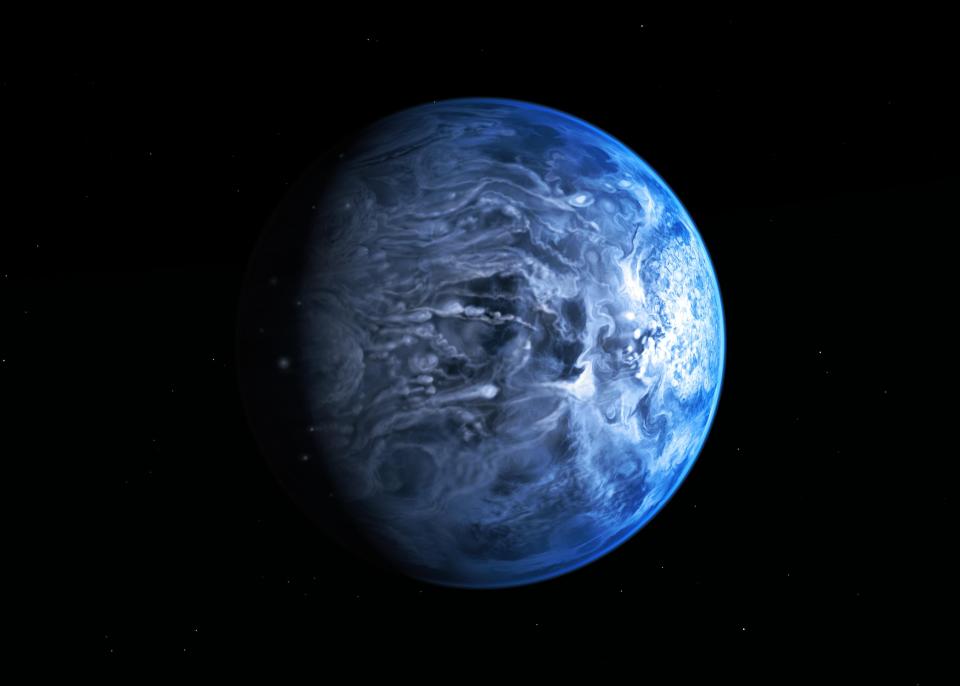'Stinky' giant planet where it rains glass also has a rotten egg odor, researchers say
People of Earth are in luck they are 64 light-years away from a planet that is scorching hot and smells like rotten eggs, according to researchers.
Planet HD 189733b is a gas giant exoplanet discovered in 2005, according to NASA.
"This far-off blue planet may look like a friendly haven – but don’t be deceived! Weather here is deadly," the U.S. government agency said. "The planet’s cobalt blue color comes from a hazy, blow-torched atmosphere containing clouds laced with glass."
A study published on Monday in the journal Nature found something new concerning HD 189733b: its pungent smell. The new data was found from the James Webb Space Telescope, including the detection of a trace of hydrogen sulfide, which is known for its rotten egg odor at low concentrations, according to the Occupational Safety and Health Administration (OSHA).
"Yes, the stinky smell would certainly add to its already infamous reputation. This is not a planet we humans want to visit, but a valuable target for furthering our understanding of planetary science," astrophysicist Guangwei Fu of Johns Hopkins University in Baltimore, lead author of the study published in the journal Nature, told Reuters.
Hydrogen sulfide is also known to be "extremely flammable and highly toxic," according to OSHA.

HD 189733b is a 'hot Jupiter' planet
The planet is categorized as a "hot Jupiter," meaning it is a gas giant similar to Jupiter but much hotter due to it being close to a star, NASA said. HD 189733b orbits 170 times closer to its host star than Jupiter does to the sun, according to the government agency. The planet completes one orbit every two days compared to the 12 years Jupiter takes for one orbit of the sun.
"They are quite rare," Fu said about hot Jupiters, per Reuters. "About less than one in 100 star systems have them."
Jupiter does have some trace amounts of hydrogen sulfide in its atmosphere, but not nearly as much as HD 189733b. The planet is also about 10% bigger than Jupiter in diameter and mass, according to NASA.
HD 189733b's proximity to Earth makes it easier to study
Although we can not smell HD 189733b, researchers can study it better based on its proximity to Earth.
"The close distance makes it bright and easy for detailed studies," Fu said, per Reuters. "For example, the hydrogen sulfide detection reported here would be much more challenging to make on other faraway planets."
So far, HD 189733b is the first exoplanet to have traces of hydrogen sulfide.
This article originally appeared on USA TODAY: 'Hot Jupiter' planet HD 189733b has rotten egg smell: Researchers


